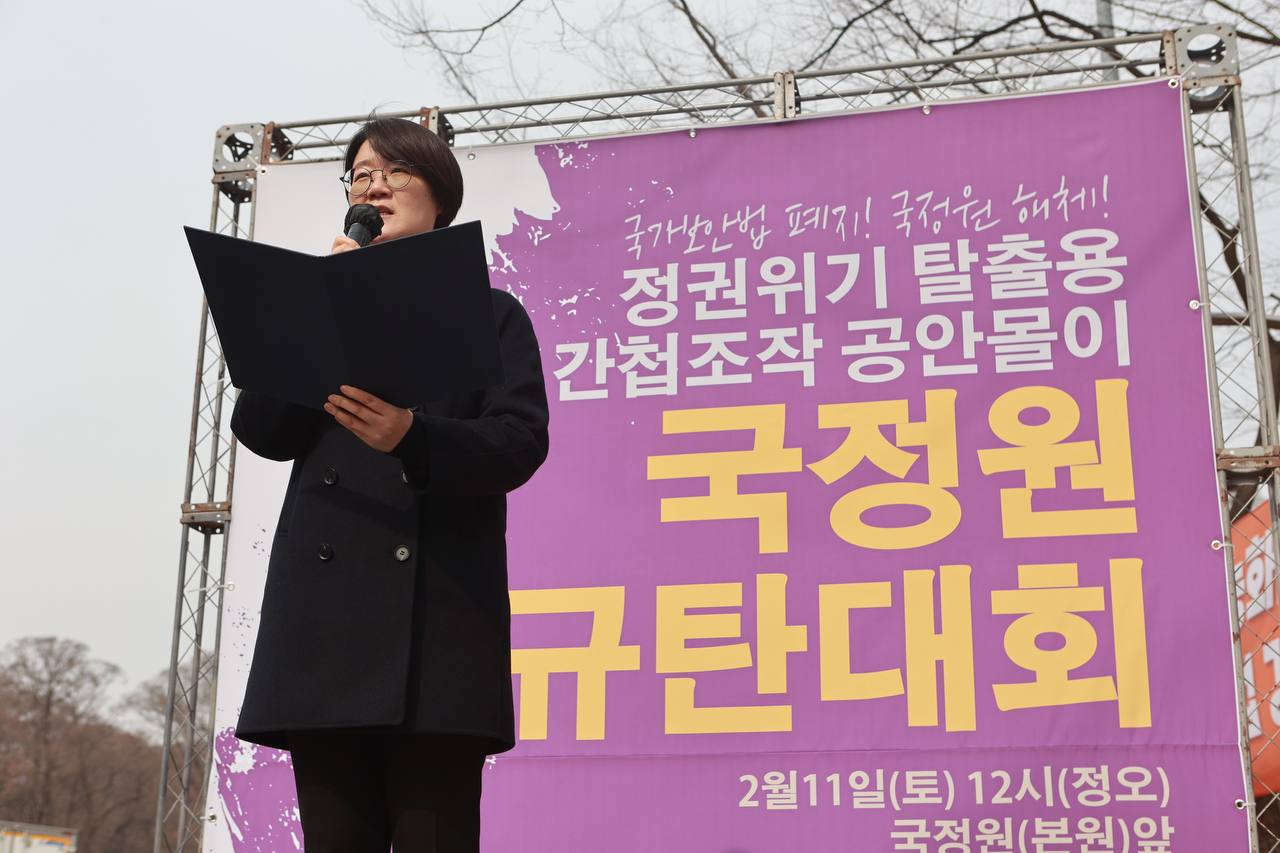 |
Yun Hee-suk, the leader of the Progressive Party, speaks at a Feb. 11 rally calling for abolishing the National Intelligence Service. (Progressive Party) |
Two were arrested over the weekend on Jeju Island on charges of violating the national security law in a spiraling investigation into a North Korean spy ring.
According to the Progressive Party, the head of the party’s Jeju chapter and a senior official at the anti-free trade Nationwide Farmers’ Association were nabbed by the National Intelligence Service and the police on Saturday.
Their arrest comes after the NIS and police searched the offices of the Progressive Party and the homes of the party’s leaders in November and December last year.
Some within the party, along with others at labor organizations including the farmers’ association, were accused of communicating with North Korean officials and aiding their secret efforts to spy on South Korea and push a pro-North Korea agenda.
The Progressive Party has denied all accusations, saying in a statement Saturday that the ongoing investigation into its party officials was the Yoon Suk Yeol administration’s “ploy to cover up its failures.”
“Our party will continue to stand up against the Yoon administration’s fabricated security crisis, and our fight to have the National Intelligence Service abolished will not stop,” the party said in the statement.
In a related investigation, the offices of South Korea’s major umbrella labor union -- the Korean Confederation of Trade Unions -- were searched last month over some of its officials’ suspected ties with North Korea.
The Progressive Party, deemed to be more left than the National Assembly’s majority-holding Democratic Party of Korea or the Justice Party, was formed in October 2017 as a result of the merge of two left-wing parties -- the New People’s Party and the People’s United Party.
The party’s main beliefs include “recovering national sovereignty from remaining Japanese colonialism” and “dismantling the unequal relationship between South Korea and the US.”
The NIS, together with the police and the prosecution service, launched a joint investigation bureau on North Korean spying activities earlier this month, to operate until the end of this year.
From next year, the NIS’ authority to investigate North Korean espionage-related crimes will be transferred to the police as a result of revisions to the law during the last Moon Jae-in administration.
In December 2020, the then-ruling Democratic Party unilaterally passed a bill revising the National Intelligence Service Act to strip the secret intelligence service’s investigative authority and handed it to the police, with a grace period of three years.
Over this year’s joint investigation, the NIS will be sharing its counterespionage operations tactics and espionage investigation strategies with the police.







![[Today’s K-pop] Blackpink’s Jennie, Lisa invited to Coachella as solo acts](http://res.heraldm.com/phpwas/restmb_idxmake.php?idx=644&simg=/content/image/2024/11/21/20241121050099_0.jpg)